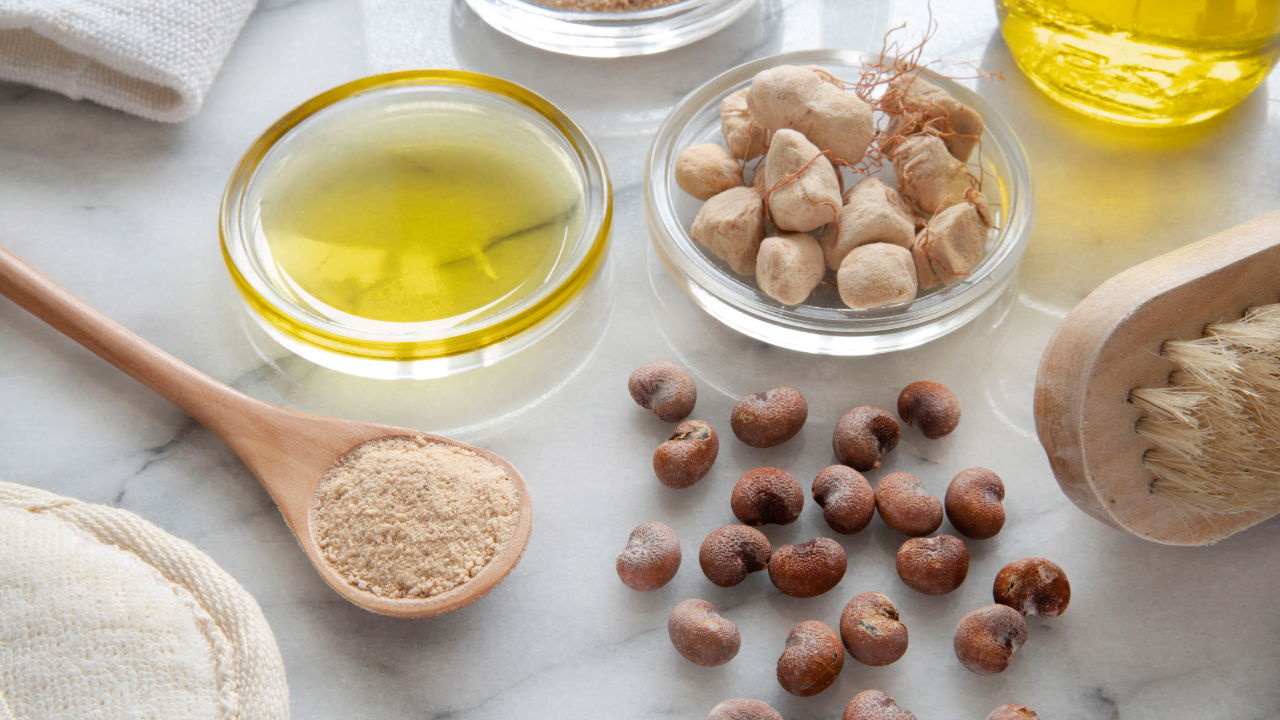These digestion-friendly foods can enhance gut health by providing prebiotics, probiotics, fiber, and digestive support, promoting regularity and alleviating discomfort
Gut health plays a crucial role in our overall well-being, influencing everything from digestion to immunity and even mood. With a focus on naturally sourced nutrients, let's explore how certain foods can nourish your gut, support digestion, and ultimately contribute to a healthier you.
Introduction to Gut Health
Gut health isn't just a buzzword; it’s a foundational pillar of our overall well-being. At its core, gut health refers to the balance of microorganisms living in our digestive tract. This intricate system includes billions of bacteria, viruses, and fungi that work together to break down food, absorb nutrients, and keep our immune system primed and ready to defend against sickness. Essentially, a healthy gut means a thriving body.
Why should you care about your gut health? For starters, it plays a vital role in how well we digest food and absorb nutrients. It can influence moods and energy levels, as over 90% of the body’s serotonin—a mood-regulating neurotransmitter—is produced in the gut. So, if the gut is happy, chances are, you’ll feel good too. Additionally, a thriving gut can help fend off chronic diseases, protect against infections, and reduce inflammation, making it crucial to prioritize the foods we consume. Getting to know your gut is not just a health trend; it’s about embracing a lifestyle that promotes balance and vitality from the inside out.
The Role of Prebiotics and Probiotics
When it comes to gut health, prebiotics and probiotics are the dynamic duo you want on your plate. But what exactly are they?
What Are Prebiotics?
Prebiotics are non-digestible fibers found in various foods that serve as food for the beneficial bacteria in your gut. Think of them as fertilizer for your gut microbiome. These fibers help stimulate the growth of good bacteria, improving digestion and boosting your immune system. Foods rich in prebiotics include chicory root, asparagus, bananas, and garlic. By incorporating these into your diet, you can give your friendly gut bacteria the nourishment they need to thrive.
What Are Probiotics?
On the flip side, probiotics are live bacteria that add to the population of good bacteria in your gut. You can find them in fermented foods like yogurt, kefir, sauerkraut, and kimchi. These little powerhouses can improve gut health by maintaining the right balance of bacteria, helping in digestion, and even enhancing your mood—since a healthy gut is linked to a healthy mind.
How They Work Together
Prebiotics and probiotics work hand in hand to create a gut-friendly environment. Prebiotics provide the food, while probiotics supply the beneficial bacteria. This synergy enhances overall gut function, making it easier for your body to absorb nutrients and fend off harmful pathogens.
Incorporating both into your daily meals—like enjoying a yogurt parfait topped with banana slices or adding garlic to your stir-fries—can set the foundation for a healthier gut. So, load up on these foods, and let your gut flourish.
Key Foods That Support Gut Health
When it comes to keeping your gut happy, certain foods shine brighter than others. Let's break down some top choices that not only taste good but also work wonders for your digestive system.
1. Baobab Powder
This superfood comes straight from the iconic baobab tree, often dubbed the "Tree of Life." Baobab powder boasts a nutritional profile that's hard to beat, packed with fiber and a hefty dose of vitamin C. Its high fiber content helps bulk up your stool, making it easier to pass, while acting as a prebiotic to nourish beneficial gut bacteria.

How to use it? Sprinkle it into smoothies, mix it into yogurt, or add it to baked goods. The subtle, tangy flavor makes it a versatile addition to various recipes.
2. Bananas
If you’re looking for an easy and tasty gut booster, bananas are your friend. They're rich in pectin, a type of soluble fiber that helps get your digestive track back on track. Plus, they’re naturally sweet and portable—perfect for a quick snack!
Try slicing them into oatmeal, blending them into smoothies, or just munching on one whole between meals.
3. Yogurt
Yogurt isn’t just a delicious dairy treat; it’s also brimming with live cultures that can keep your gut thriving. The probiotics found in yogurt help replenish the good bacteria in your gut, making it a top contender for gut health.
When shopping for yogurt, look for options that say "live and active cultures" on the label. From parfaits to salad dressings, there are countless ways to enjoy this creamy goodness.
4. Ginger
Ginger is not only a popular spice; it's also a traditional remedy for various digestive issues. Known for its ability to alleviate nausea and promote gut motility, ginger can be a lifesaver during the rougher patches of digestion.
Sipping ginger tea, adding fresh ginger to stir-fries, or tossing it into smoothies are all excellent ways to reap its benefits.
5. Oats
Oats are more than a hearty breakfast; they’re a digestion powerhouse due to their high soluble fiber content. This fiber, known as beta-glucan, forms a gel-like substance in the gut, helping to regulate bowel movements and keep you feeling fuller for longer.
Cook up a bowl of oatmeal, add it to smoothies, or use it as a base for energy bites. The options are endless.
These gut-friendly foods are just a few of the many ways you can start improving your digestive health. Incorporating them into your diet can be easy and delicious—making it a win-win for your health and your taste buds.
Additional Foods for Gut Health
When it comes to gut health, variety is key. Adding different foods into your diet can provide a spectrum of benefits, supporting your digestive system in unique ways. Here are some worth considering:
Chia Seeds
These tiny powerhouses are packed with fiber, which is crucial for keeping digestion smooth. When mixed with water, chia seeds form a gel-like consistency, aiding in the movement of food through the digestive tract. Plus, they offer omega-3 fatty acids that reduce inflammation. Toss them in smoothies, puddings, or salads for a healthy crunch.
Kefir
Kefir is a fermented dairy product that's bursting with probiotics—far more potent than yogurt. These live cultures can help balance the gut microbiome, improving digestion and boosting immunity. If you're not into dairy, there are plenty of non-dairy kefir options available made from coconut or almond milk. Blend it into your morning smoothie or enjoy it straight up for a gut-friendly drink.
Garlic and Onions
Both garlic and onions are excellent sources of prebiotics, helping to foster the growth of beneficial gut bacteria. These pungent ingredients not only enhance flavor in your meals but also provide anti-inflammatory and immune-boosting benefits. Use them in stir-fries, soups, or roasts to easily incorporate their goodness into your diet.
Leafy Greens
These leafy powerhouses, like spinach and kale, are high in fiber and nutrients that support gut health. They also help to regulate bowel movements and promote the growth of healthy gut flora. With endless ways to enjoy them—raw in salads, sautéed, or blended into smoothies—leafy greens are an easy addition to any meal.
Incorporating these foods into your meals can make a big difference in your gut health. Try mixing and matching them to create balanced, gut-friendly dishes that keep you feeling your best!
Lifestyle Tips for Enhancing Gut Health
When it comes to gut health, it’s not just about what you eat—it’s about how you live. Here are some lifestyle tips that can help you support your digestive system and overall well-being.
Stay Hydrated
Water is your gut’s best friend. Staying hydrated helps your digestive system work smoothly. When you're well-hydrated, food moves through your intestines more easily, reducing the risk of constipation and bloating. Aim for at least eight glasses of water a day, and remember that fruits and vegetables can also contribute to your daily intake.
Mindful Eating
How you eat can be just as important as what you eat. Take the time to chew your food thoroughly and savor each bite. Mindful eating not only improves digestion but also enhances flavor. Try to sit down for meals without distractions—no phones or TV. This simple change can decrease stress and help you recognize when you’re full, preventing overeating.
Physical Activity
Incorporating regular exercise into your routine can do wonders for your gut health. Whether it’s a brisk walk, yoga, or a gym session, moving your body helps stimulate the digestive process. Aim for at least 30 minutes of moderate physical activity most days of the week. Not only will this help with digestion, but it also boosts mood and overall energy levels.
By integrating these straightforward practices into your daily life, you can create a supportive environment for your gut, paving the way for better digestion and overall health. Remember, small changes can lead to significant improvements.
Common Digestive Issues and How Foods Can Help
Gut health isn’t just about what you eat; it’s also about how your body reacts to different foods. Sometimes, things can go awry, leading to uncomfortable digestive issues. The good news? Certain foods can help. Let’s break down some common digestive complaints and explore how a few simple dietary tweaks can make a world of difference.
1. Bloating
Bloating feels like a balloon has taken residence in your stomach. It can be uncomfortable and downright annoying. First, let’s talk about what to avoid: carbonated beverages, cruciferous vegetables like broccoli and cauliflower, and heavy fats. These can all contribute to uncomfortable gas buildup.
On the flip side, some foods can ease that bloated feeling. Think bananas, which are rich in potassium and help reduce water retention. Ginger is another star here; it’s known for its anti-inflammatory properties and can help soothe the stomach. A warm cup of ginger tea or a sprinkle of fresh ginger in your meals can work wonders.
2. Constipation
When “going” becomes a struggle, it’s time to up your fiber game. Foods that are high in fiber are your best allies in this situation. Think whole grains, fruits, and vegetables. Oats, for example, are fantastic—they're not just filling; they’re packed with soluble fiber, which adds bulk to your stool and helps everything move along.
Don’t forget hydration! Drinking enough water is vital for digestion and can help prevent constipation by softening your stool. The simple combination of high-fiber foods and plenty of water can often do the trick.
3. Indigestion
Indigestion can throw a wrench in your day. It can make you feel uncomfortable, especially after meals. Luckily, some natural remedies can help. Ginger and peppermint are two of the most effective. Ginger can help alleviate nausea, and peppermint can soothe an irritated stomach. Try a refreshing peppermint tea post-meal, or sip on ginger tea for a comforting remedy.
When it comes to preventing indigestion, consider how you eat. Taking your time and chewing thoroughly can make a difference, as can choosing lighter meals instead of heavy, greasy ones. Your gut will thank you.
In summary, the foods you include in your diet can play a significant role in managing common digestive issues. By being mindful of what you eat and opting for gut-friendly foods, you can take important steps towards better digestion and overall gut health.
Conclusion
Incorporating gut-friendly foods into your daily diet is a game changer for overall health. From boosting digestion to enhancing immunity, these foods play a vital role in keeping your gut healthy. Think of your gut as a garden; the right foods are the seeds that nurture it to thrive.
Don’t be afraid to experiment. Try adding a dollop of yogurt to your breakfast, or sprinkle some chia seeds on a smoothie. Find what makes you feel good, and keep it interesting. Your gut will thank you for it.
Ultimately, prioritizing gut health isn't just a trend—it's a foundational step toward a healthier, happier you. So, take a moment today to think about what you’re putting on your plate. Small changes can lead to big benefits. Let’s make gut health a priority in our journey toward overall wellness!
Additional Resources
If you're keen to dive deeper into the world of gut health, there are plenty of great resources out there. Here’s a roundup of some valuable reads and tools to help you on your journey.
- Healthline: Their article on gut health is a solid starting point. You'll find a comprehensive overview of gut health, how it affects your body, and practical tips for improving it. Check it out here.
- The American Gut Project: This initiative offers insights based on research about our gut microbiomes. They provide data that helps you understand what contributes to a healthy gut and the varied diets of different populations.
- Books: Look into titles like "The Gut Health Cookbook" or "The Good Gut." They delve into the science behind gut health, share recipes, and offer lifestyle tips to optimize your digestion.
- Podcasts: Tune in to health-focused podcasts such as “The Gut Health Guru” for expert interviews, practical advice, and success stories related to gut health.
- Blogs: Many nutritionists share their insights on gut health through their blogs—feel free to explore some reputable ones for recipes, tips, and more in-depth discussions.
Always remember, making small changes to your diet can lead to significant improvements in gut health over time. So get curious, experiment with new foods, and enjoy the journey to a healthier gut!



